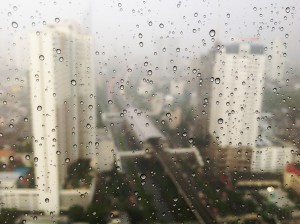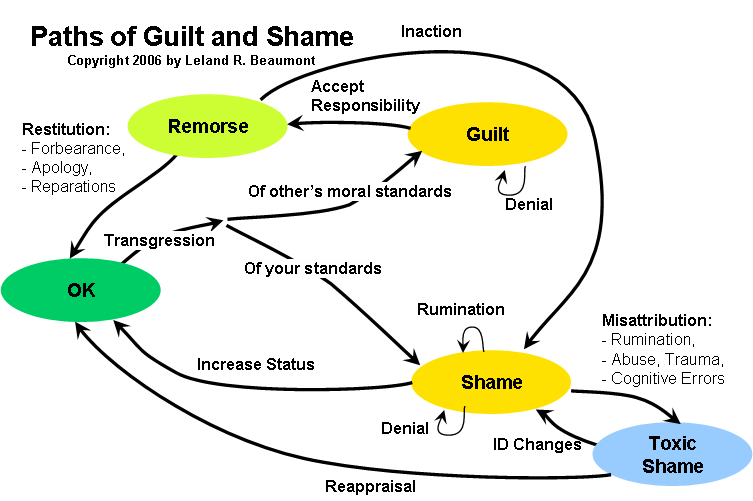Sidelining White Shame and Joining the Social Justice Conversation
 Two weekends ago hundreds of thousands of people took to the streets in major US cities and throughout the world to stand up against police violence and racism. Here’s what I did: I slept in because I felt a little head cold coming on, leisurely made hash browns and organic free range eggs for breakfast, checked email, tried working on this article, took a break to watch Parenthood on Netflix (a show about mostly white people, set in Berkeley), and went out to dinner with friends. All of this took place in a safe, peaceful, San Francisco neighborhood. I could barely grasp that the protests were even happening.
Two weekends ago hundreds of thousands of people took to the streets in major US cities and throughout the world to stand up against police violence and racism. Here’s what I did: I slept in because I felt a little head cold coming on, leisurely made hash browns and organic free range eggs for breakfast, checked email, tried working on this article, took a break to watch Parenthood on Netflix (a show about mostly white people, set in Berkeley), and went out to dinner with friends. All of this took place in a safe, peaceful, San Francisco neighborhood. I could barely grasp that the protests were even happening.
Where Am I in All of This?
I often feel unsure of my role in this global conversation about privilege and oppression. The oppressed have shouldered the outrage and conversation about oppression alone. “Why?” I wonder. My heritage implies privilege based on the subjugation of other human beings. But as a white person in Northern California, I can easily dismiss that reality. I can hide behind my whiteness because I represent the “neutral” control group to which the other is compared.
What is white culture? I find myself latching to my minor identities just to feel like I’m part of something special. I say I’m “Jewish” but is that just to relieve myself of the shame I feel about my whiteness and the harm my ancestors have caused? I’ve only been in a synagogue once – for a funeral. Conversely, my Declaration-of-Independence-signing American colonialist ancestors on my mother’s side undoubtedly owned slaves. But that’s been discussed very little in my life. Why?
An infuriating stretch of the imagination
Recently, I rented a car and in the short time it was parked in my relatively peaceful neighborhood, someone busted a window looking for something to steal. Upon the request of the rental car company, I drove to the closest police station to make a report. As I approached the police station, feeling a bit shaken up by the break-in, I knew I was safe because where I was going people in uniforms would try to help. Thankfully I’m a white woman.
But for people in communities that feel threatened by law enforcement it takes an infuriating stretch of the imagination for people of white privilege to take in their stories. Looking at photos of protesters, I saw a sign that says “Who protects us from the police?” That’s a question I haven’t had to ask myself. I too easily forget that not long ago a black man was legally just two-thirds a person in the eyes of the United States government. This is a legacy that’s not easily undone, as evidenced by the state of our criminal justice system, but for many white folks the conversation is easily dismissed. According to a 2013 Pew Research Poll “7 in 10 blacks and more than 1 in 4 whites also concur that blacks are treated unequally by the criminal justice system. A majority of blacks also say they are treated less fairly than whites in public schools and in the workplace. Fully 1 in 3 blacks, 1 in 5 Hispanic Americans and 1 in 10 whites said they were treated unfairly within the last year because of perceptions of their race.” NY Times
Ever since I was a little kid, I had terrorizing nightmares revolving around there being nowhere to turn, no one to trust. While this isn’t the reality of my life, I’ve become more keenly aware of how this level of terror is a reality for lots of people. Buried deeper underneath the plotline of my nightmares was an existential fear that those in power will decide my life doesn’t matter. I imagine what would have been done to me if I lived in Germany in the early 20th century. My Jewish ancestry would have branded me as impure, a plague of society. But my present day reality is filled with evidence that I generally do matter and will be protected.
If you generally feel safe and protected are you courageous enough to do an experiment with me? Imagine your life, your neighborhood, your town, your work and imagine again and again you see messages reinforced, subtly or not-so-subtly: “You don’t matter. No one is going to protect you. You’re on your own and people generally think folks that look like you possess such and such negative qualities.” Notice how it feels to be reading this. Do you want to stop reading? Do you want to shut down? Where do you feel it in your body?
Guilt vs. Shame
The most damaging block to transformation is white shame. You might hear this referred to as white guilt but I don’t think “guilt” captures the desperation to deny and forget. Brene Brown carefully differentiates shame and guilt in her work:
Guilt=I did a bad thing
Shame=I’m a bad person
Shame says, “You are fundamentally bad so what’s the point?” In shame, we can’t heal or grow and we can’t face up to our responsibilities. I feel guilty for not being at the protests this weekend. But when that feeling morphs into shame I want to completely disengage. I think, “What’s the point? I’m just going to ignore this because I can and because it’s too painful to face and because I feel too powerless to do any good.” The best way to transform shame into its more digestible brother, guilt, is to name it, stay with the discomfort as it arises as sensation and begin to unpack what hard personal beliefs live buried beneath the need to avoid.
 We can handle some guilt. Guilt is sometimes useful because it can motivate us to change our behavior when what we do or (unknowingly participate in) doesn’t match who we believe we are. Shame causes me to shut down, get defensive, zone out, or retaliate but guilt doesn’t disempower me or prevent me from showing up. In fact, guilt says “I’m going to keep trying because despite not being at the protests, I know I care and am finding my way.” Also, guilt allows me room to figure out what showing up looks like for me. Today, it means processing and writing about my own racism and privilege. On another day, this may mean joining in the protests.
We can handle some guilt. Guilt is sometimes useful because it can motivate us to change our behavior when what we do or (unknowingly participate in) doesn’t match who we believe we are. Shame causes me to shut down, get defensive, zone out, or retaliate but guilt doesn’t disempower me or prevent me from showing up. In fact, guilt says “I’m going to keep trying because despite not being at the protests, I know I care and am finding my way.” Also, guilt allows me room to figure out what showing up looks like for me. Today, it means processing and writing about my own racism and privilege. On another day, this may mean joining in the protests.
So to transform my own shame, I’ll share this: When I was a brand new therapist, I worked in a hospital unit where many of the patients were African American and poor. I remember a woman telling a story about gun violence and other threats to safety in her neighborhood. My first reaction crept upon me subtly and I found myself not believing her story, thinking she was being dramatic or perhaps dealing with some dementia. Upon reflecting with colleagues later, I realized I was terrified by the prospect that what she shared was actually true. Her story was far from my experience of the world and I didn’t want to believe it. This realization helped open me up to listening in a new way that includes paying close attention to my knee jerk reactions and where they’re coming from. By listening in this way, I honor the part of me that wants to keep growing so I can more consistently live up to my value that all lives matter. When terror and shame make me turn away from these stories, I turn away from my values and am compliant in reinforcing a system of oppression.
This Is a Process
Like most things, change doesn’t happen overnight. Which is particularly tough when we think about the urgency of the issues we face globally like racism, sexism, and climate change. I’m engaging in my own ever-changing growth process surrounding these issues and am far from being an expert. But if you’re a recipient of white privilege and you aren’t sure how to engage, here are some things you can do:
- Be with the feelings of discomfort.
- Notice, with as little judgment as possible, what thoughts and feelings arise and what defenses you employ to cope.
- Notice that moment in which you hear the voice that says “give up” and ask yourself if you’re feeling shame.
Respect that this process isn’t smooth and involves many mistakes but ultimately it will benefit others and set you free from the deeply rooted programming of our society. Ultimately, you can live more aligned with what you care about.
If you’d like some resources for exploring this issue, I encourage you to watch the films of Lee Mun Wah: The Color of Fear, Last Chance for Eden, and If These Halls Could Talk. You can learn more and find out about upcoming trainings with Lee Mun Wah and Stirfry Seminars by visiting http://www.stirfryseminars.com/about/bios/bios_munwah.php.
For a great resource to connect you with the myriad ways you can get involved with what’s happening right now, visit the Catalyst Project website here: http://collectiveliberation.org/in-the-time-of-ferguson/
For more on shame and how to transform it, check out any of Brene Brown’s TED Talks and books: http://brenebrown.com/
